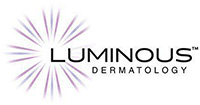About Rashes
What are they?
The term “rash” covers a wide range of skin conditions, usually referring to changes in the skin that manifest as bumps, blisters, or red patches. Most of these are harmless, but they can be indications of other skin problems or health issues. Common types of rashes include chronic skin problems, atopic dermatitis, contact dermatitis, bacterial infections, fungal infections, and viral infections.
What causes them?
There are many reasons why you could develop a rash, and some of the most common factors include the following: stress, allergies, genetics, food or drink, various infections, certain medications, insect bites or stings, and sun or heat exposure. If you have a rash that does not disappear after 1-2 weeks, be sure to schedule an appointment to discuss your condition, receive a proper diagnosis, and learn more about your available treatment options.
Common treatments
Skin rash treatments vary widely depending on the type, causes, and symptoms. The skin rash experts at West Dermatology have the knowledge and experience needed to examine you visually and determine exactly the type of rash you have. Once your rash have been identified, we’ll determine a proper treatment for your particular rash. Rash treatments offered at our center include moisturizing lotions and/or creams, topical anti-itch medications, oral antihistamines, topical anti-fungal medications, and light therapy.
Providers
Our approach & expertise
Skin rashes can be troublesome, as they not only itch but can also make you self-conscious about your appearance. As your neighborhood skin expert, West Dermatology has the experience and knowledge necessary to help you manage this condition. Contact an office today if you notice a rash that isn’t being controlled easily so that we can address your particular skin issue


